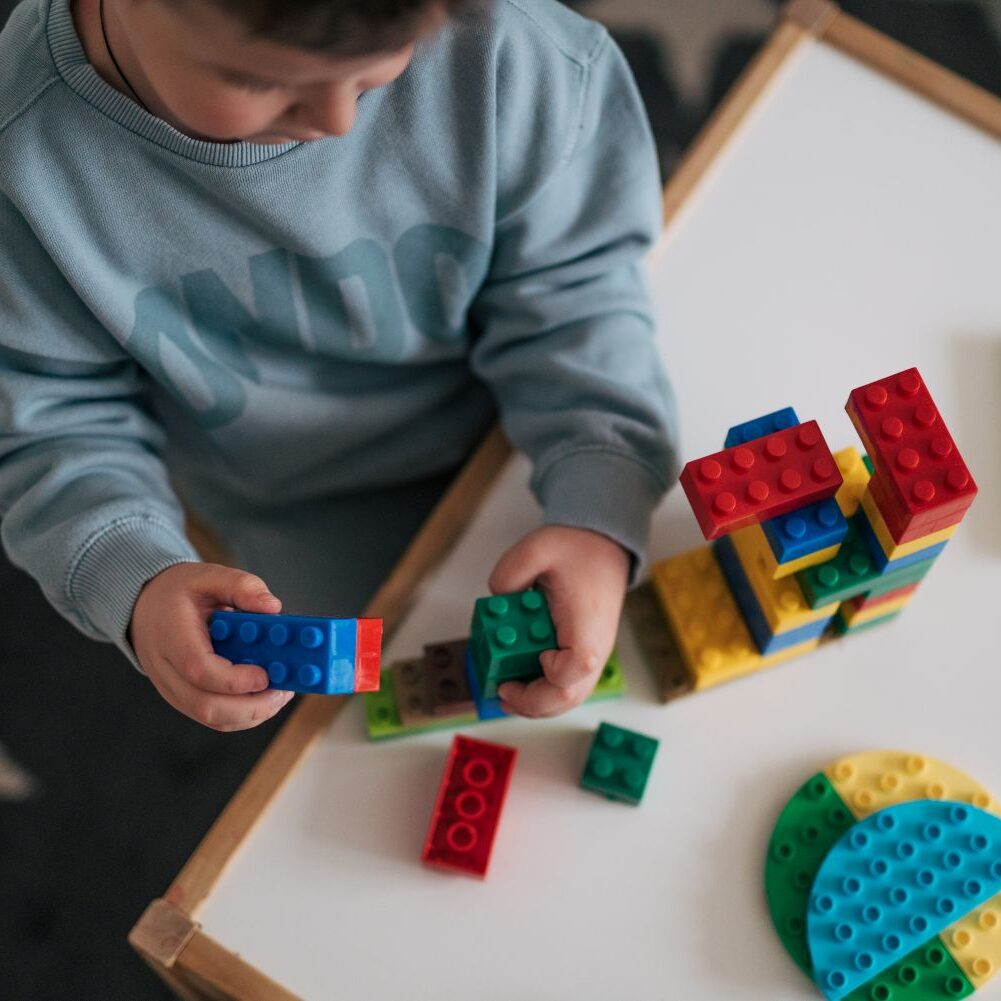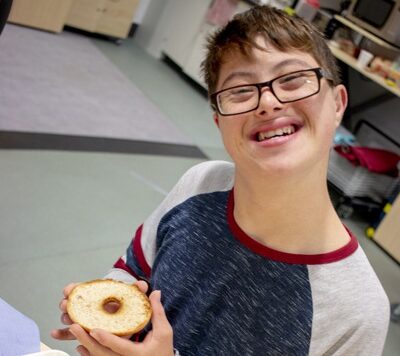When Tanya’s son started reception, like most parents, she didn’t expect to be receiving phone calls from the school two to three times a week, and it came as a huge shock how much he was struggling. After getting to a point where he almost couldn’t attend the after school club anymore, it was clear he needed individual support to meet his sensory needs. Through working with the school and after school club to put things in place, he is happy and thriving after a difficult start at school.
When I returned to work after the birth of my son I thought he’d benefit from the nurturing environment a childminder provides, and I was right, as she was excellent.
Because he was really thriving with her, we thought that he would be the same in school, and didn’t think the transition would be a problem. It wasn’t just us though – our childminder also thought he would manage it well.
So, it came as a real surprise to us when, in the third or fourth week of reception, we got a call from one of the teachers telling us that he was struggling. I was really taken aback as the way that it manifested was that he was hurting other children. He had two teachers, and soon one would call me two or three times a week. I said, “I can’t deal with a phone call home all the time – can you email me instead of calling?”
It was just really stressful, and drop off was a nightmare… a nightmare.

Drop offs were a nightmare
We live three doors away from school, which is a massive bonus but a hindrance at the same time, as he knows I work from home.
He would often really delay getting out of the door, or he would get halfway up the street and run back home or, when we’d get to the door, he’d be kicking and screaming.
A difficult start at school
We then had a meeting with school where they started to put some things in place, such as an individual provision map, which is separated out into strengths, barriers to learning and needs.
They were really keen to get it right for him – but the phone calls continued. The weird thing was that I never had to go and pick him up… they were just calls saying “we have to inform you that he’s hurting other children”.
It was devastating really as you don’t want to see your child struggling when you can see what they’re capable of and you know how sociable they are.
Now I know that it was about his ability to regulate his emotions and deal with sensory stress he couldn’t cope with; his lid would flip, and he’d just lash out. We also did get some violence and aggression in our household, which was really hard thinking back.
We knew that he would sometimes act out at home, and because of that we spent a lot of time trying to think if it was much of an issue before he started reception, but to be honest it didn’t feel like any more than every other three-year-old… but it definitely ramped up when he started school.
As a professional who works with adopted young people in school – and who delivers nonviolent resistance training to parents – it made me feel really de-skilled when it came to my own child. I felt like I should know the answers or should know more about how best to support my son.
I think because it came as such a shock, it just knocked me, and I felt some shame around that.
Then, at Christmas, we got pulled in with after school club and they basically said in a roundabout way that if it didn’t change, he would have to stop coming. My partner and I both have to work, and we didn’t have family around to support us, so it was a big deal.
We held a joint meeting between the school and after school club and that resulted in him working with a new person at the club. They really wanted him to stay, and they just really “got” him.
The thing is, he’s a very likable boy! He’s very curious and asks a lot of questions, when he’s in that window of tolerance. He’s quite obsessive about history and science – he’s really into horrible histories and he’s got a huge thirst for understanding the world.

They turned it around for him
They turned it around for him in after school club by trialling loads of stuff, such as a quiet sensory room for him and a befriender to work with him and take an interest in his likes and dislikes.
The worker also got him doing tasks for her… which I think was to keep him busy as he’s pretty active!
In winter they were always indoors, and he hated it as it was very noisy with lots and lots of children. He likes to have a bit of chill out time, so they got him some earphones to put on and let him exercise his creativity by doing lots of arts and giving him lots of one-to-one attention.
During this time the school were still struggling with him, but they were trying to implement things relating to transitions and sensory needs. The unstructured nature of lunchtime was difficult for him, and so they split his lunchtime so he could have his dinner, come out, have some time with a teaching assistant and then go to LEGO club.
We were dreading him moving into year one, but he loves it. He has things in place like fidget toys and sand timers and he’s really thriving.
Meeting him where he’s at
In reception he wasn’t allowed to take in transitional items that could remind him of home, as other kids were jealous, but in year one it’s been a huge help for him to take things in that mean a lot to him.
He’s taken a little model ship of the titanic in to show. And… you know the plague masks that doctors used to wear? We made one of them for him to wear but he was freaking out the other kids! He gets excited about bringing things in and showing them to teacher… I just feel like they’ve really tried to meet him where he’s at and adapt to him.
Now he’s six and we realise that reception was really a very difficult time for him. When I received his year one report it couldn’t have been more glowing, and that was down to the staffing, as we were really in a different place than we were.

Struggling to settle into school?
You may expect your child to have some anxious feelings and nerves at the start of the school year, or after a half term or end of term break. But what if your child is still struggling to settle in school, despite having been back for several weeks?
Read our guideDonate
The start of the school year can be a real challenge. Your donation can help us provide impartial advice and support to SEND children and their families.





